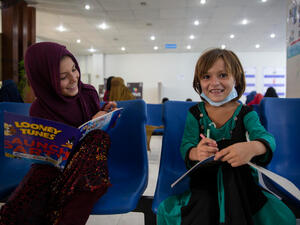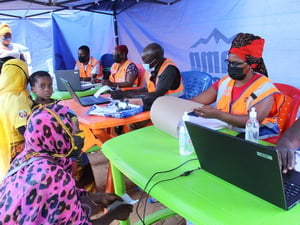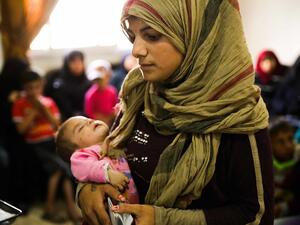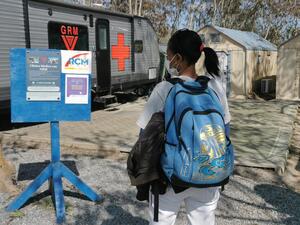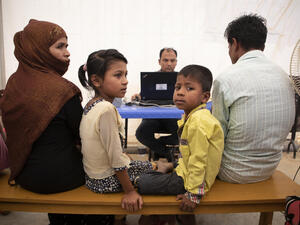Pakistan extends validity of registration cards for 1.7 million Afghans
Pakistan extends validity of registration cards for 1.7 million Afghans
UNHCR has welcomed Pakistan's decision to allow 1.7 million registered Afghans to remain in the country for three more years, alongside continued voluntary repatriation to Afghanistan. For the past three decades, Pakistan has shown strong commitment to the protection of Afghan refugees, who have been caught in one of the world's most protracted refugee situations. Pakistan remains host to the largest refugee population in the world under UNHCR's care.
The new Strategy for the Management of Afghans in Pakistan, which was endorsed on Wednesday by the cabinet of the Pakistan government, includes the extension until the end of 2012 of Proof of Registration (PoR) cards. These cards are issued to registered Afghan refugees. The existing PoR cards, which expired on December 31 last year, will be replaced with new cards with enhanced identification features.
The card is an important form of identification for Afghan refugees proving their legal right of stay in the country, and therefore giving important protection against possible detention or deportation - particularly during 'crackdowns' against foreigners and suspected illegal immigrants in the wake of terror incidents.
More than 3.5 million Afghans have returned home from Pakistan with UNHCR's help since 2002 while more than a million others have returned by their own means. The voluntary repatriation operation resumed this week after the winter recess, from UNHCR centres in the North West Frontier Province city of Peshawar and in Quetta in the southern province of Balochistan. UNHCR remains committed to continuing its work with the governments of Pakistan and Afghanistan to find lasting solutions for Afghan refugees.
The new Strategy for the Management of Afghans in Pakistan also extends the Tripartite Commission Agreement between UNHCR, Pakistan and Afghanistan for another three years as the gradual repatriation of Afghans continues in safety and dignity and in line with the security situation and capacity of Afghanistan to absorb returning refugees.
UNHCR will mobilize additional support for local communities in Pakistan that have hosted Afghan refugees. This will see problems like environmental degradation and the rehabilitation of infrastructure and social services addressed through the Refugee Affected and Hosting Areas programme -- a $140 million programme implemented by a number of UN agencies over 5 years.
In his statement yesterday UNHCR's High Commissioner, Antonio Guterres called on the international community to strengthen its support to Pakistan for the hosting of Afghan refugees. Pakistan's new strategy also includes arrangements for some of the unregistered Afghans and paves the way for a broader border management strategy. A visa regime will manage the stay of business people, students and other categories. Families headed by women who have lost male breadwinners will be allowed to stay.


